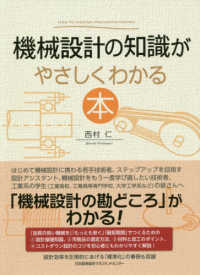Full Description
If you are a trainee teacher or experienced practitioner new to research, or are simply wondering how to get started on your education research project, this practical book will be your guide. The authors offer simple steps to ensure that you ask the key questions in the most effective way possible. The book guides you through the entire research process: from clarifying the context and conceptual background, to presenting and analysing the evidence gathered.
Supported by examples, checklists and diagrams, this fully revised and updated edition includes a wealth of information on:
Research design
Evidence gathering techniques
Practitioner research
Ethics
Data analysis techniques.
This book will be valuable to anyone begining a research or a professional or a professional or school development project, whatever stage they are at within the teaching community, from training for QTS, higher degree, or in need of evidence-backed decisions for the strategic development of their school.
Contents
PART ONE: THINK BEFORE YOU DO
The Place of Research Within the Classroom and School
Analysing the Context in Order to Ask the Right Questions
Reviewing Existing Theories and Findings
PART TWO: GATHERING EVIDENCE: WHAT EVIDENCE, WHO FROM, AND HOW TO COLLECT IT
Models of Research
Identifying Sources
Documentation: Examining Existing Evidence
Observing: Individuals, Groups and Environments
Direct Questioning: Surveys and Questionnaires
A Cyclical Model of Research: Action Research
PART THREE: MAKING SENSE OF THE OUTCOMES
Collating and Reporting Qualitative Evidence
Collating and Presenting Quantitative Evidence
Qualitative Data Analysis
Quantitative Data Analysis
Drawing Conclusions and Making Recommendations
Developing Academic Skills








